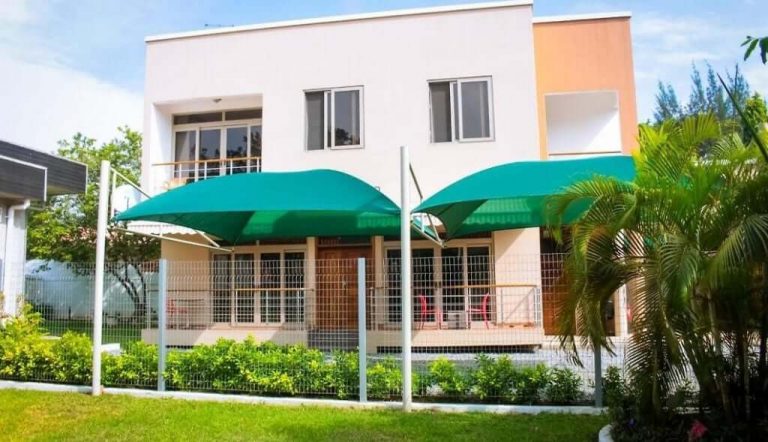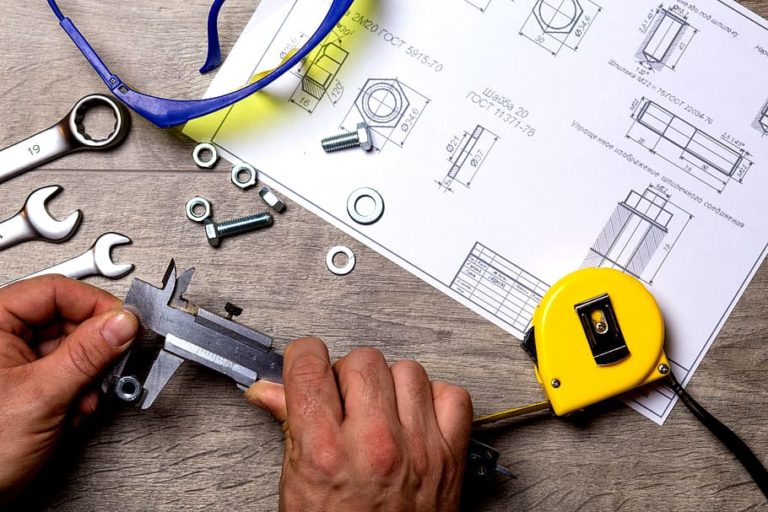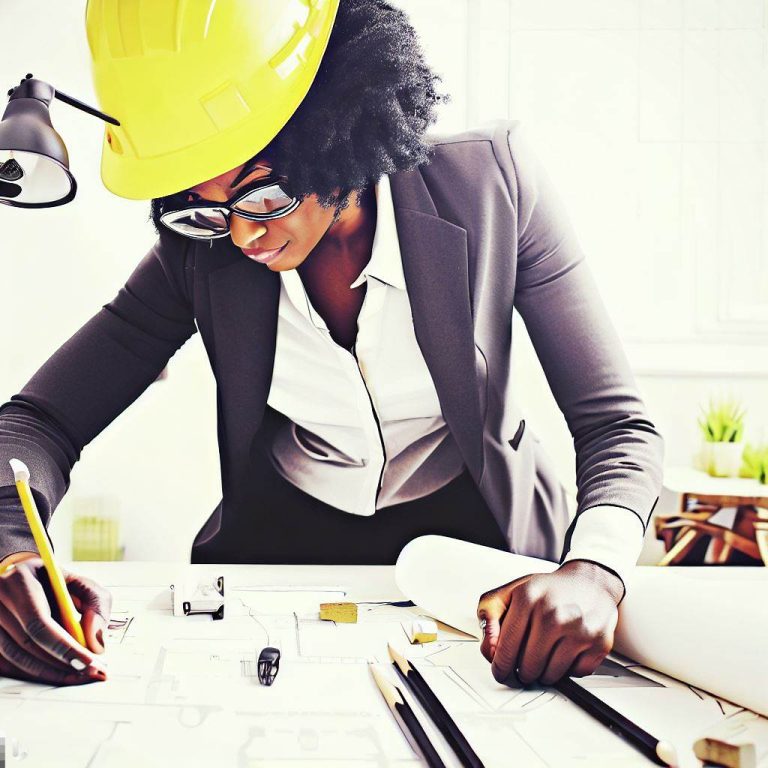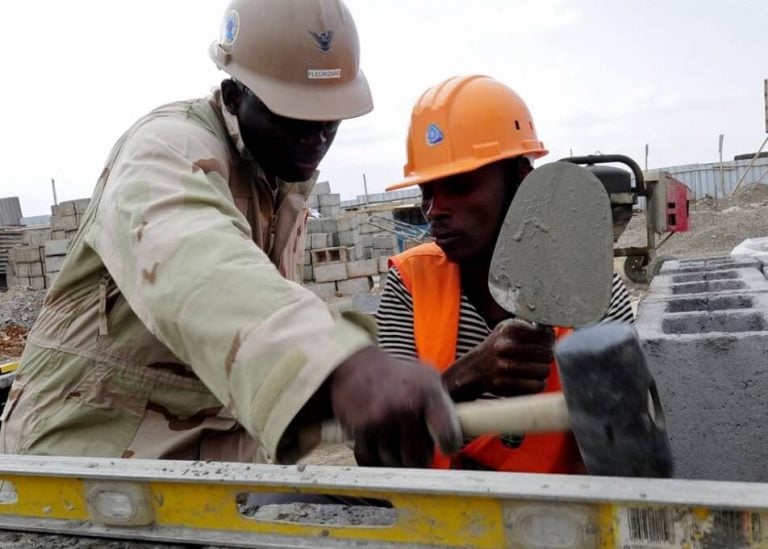Artisans you need to Build in Ghana
In this article, we will provide an exhaustive list of the artisans you need to build in Ghana. We will also highlight the importance of each artisan in the construction process, and how they contribute to the successful completion of any construction project. Whether you are building a residential or commercial property, these artisans are essential to the process and ensure that your building meets the required standards.
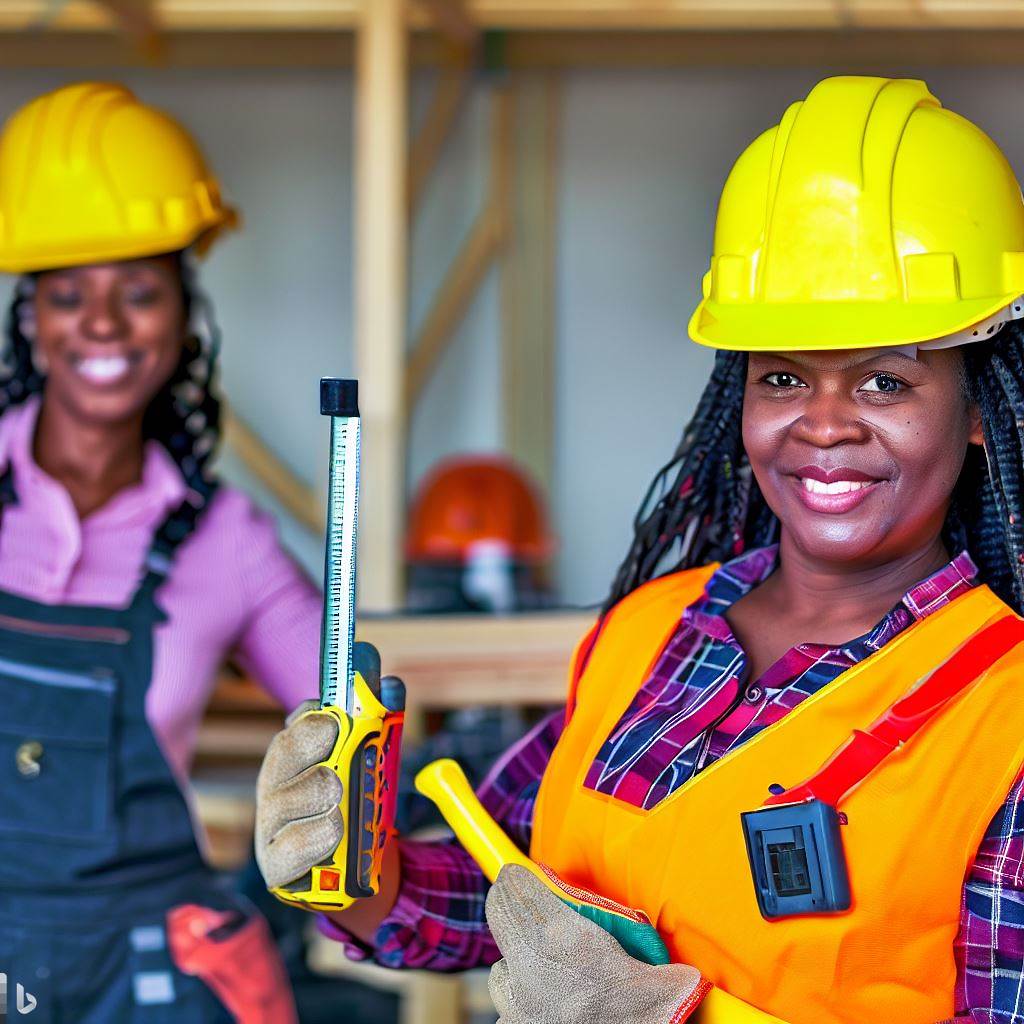
In Ghana, the construction industry is a significant contributor to the country’s economy, with many ongoing and upcoming projects across the country. A critical aspect of construction is the involvement of skilled artisans who provide their expertise in various areas of the construction process.
II. Artisans You Need to Build in Ghana
In Ghana, the construction industry is one of the most important sectors of the economy, providing employment opportunities and contributing to the growth and development of the country. Building a house or any other type of structure in Ghana requires a team of skilled artisans who are proficient in their respective trades. Here are the top artisans you need to build in Ghana:
A. Masons
Skilled craftsmen who specialize in building structures from materials such as bricks, blocks, and stones are masons. They are responsible for the foundation of a building and the construction of walls. Masons must ensure that they comply with building codes and regulations while doing their work.
B. Carpenters
Skilled artisans who work with wood to create a variety of structures and fixtures, including roofing, doors, windows, and interior finishes such as cabinets and wardrobes are carpenters. They must also ensure that they comply with building codes and regulations while working.
C. Electricians
Electricians are responsible for the installation and maintenance of electrical systems in buildings. They are responsible for wiring, installing electrical fixtures, and ensuring that they comply with building codes and regulations.
D. Plumbers
Plumbers are responsible for the installation and maintenance of water and sewage systems in buildings. They install pipes, fixtures, and fittings while ensuring compliance with building codes and regulations.
E. Welders
Welders are skilled artisans who work with metal to create a variety of structures and fixtures, including gates, fences, and metal roofs. They also have to ensure that their work is done in compliance with building codes and regulations.
F. Painters
Painters are responsible for preparing surfaces for painting and applying paint to interior and exterior surfaces. They have to ensure that their work is done in compliance with building codes and regulations.
G. Roofers
Roofers are responsible for the installation and maintenance of roofs in buildings. They have to ensure that their work is done in compliance with building codes and regulations.
H. Tilers
Tilers are responsible for the installation of tiles on floors, walls, and other surfaces. They also have to ensure that their work is done in compliance with building codes and regulations.
In summary, these are the top artisans you need to build in Ghana to ensure that your construction project is completed efficiently and to a high standard. It’s important to hire skilled artisans who are knowledgeable about building codes and regulations to avoid any issues with compliance.
III. Importance of Each Artisan in the Construction Process
A. Masons 1.
Building foundation: Masons are responsible for building the foundation of a building, which is crucial to the stability and longevity of the structure. They ensure that the foundation is level and able to support the weight of the building. 2. Laying blocks or bricks: Masons are responsible for laying the blocks or bricks that make up the walls of the building. They ensure that the walls are straight, plumb, and level.
B. Carpenters
1. Roofing: Carpenters are responsible for building the roof of a building, which protects the structure from the elements. They ensure that the roof is structurally sound and able to withstand wind, rain, and other environmental factors.
2. Doors and windows: Carpenters are responsible for installing doors and windows, which provide access and ventilation to the building. They ensure that the doors and windows are properly sealed and secure.
3. Interior finishes: Carpenters are responsible for creating the interior finishes of the building, such as cabinets, shelves, and trim work. They ensure that the finishes are aesthetically pleasing and functional.
C. Electricians
1. Electrical wiring: Electricians are responsible for wiring the building, which provides power to the structure. They ensure that the wiring is up to code and able to handle the electrical demands of the building.
2. Installation of electrical fixtures: Electricians are responsible for installing electrical fixtures such as lights, outlets, and switches. They ensure that the fixtures are properly installed and functional.
D. Plumbers
1. Plumbing installation: Plumbers are responsible for installing the plumbing systems in the building, which provide water and sewage services. They ensure that the plumbing is up to code and able to handle the needs of the building.
2. Installation of water and sewage systems: Plumbers are responsible for installing the water and sewage systems in the building, which provide clean water and remove waste. They ensure that the systems are properly installed and functional.
E. Welders
1. Metal fabrication: Welders are responsible for fabricating metal structures such as gates, railings, and fences. They ensure that the structures are sturdy and able to withstand environmental factors.
2. Installation of metal structures: Welders are responsible for installing metal structures such as gates, railings, and fences. They ensure that the structures are properly installed and secure.
F. Painters
1. Preparation of surfaces for painting: Painters are responsible for preparing surfaces for painting, which involves cleaning, sanding, and priming the surfaces. They ensure that the surfaces are ready for paint.
2. Painting of interior and exterior surfaces: Painters are responsible for applying paint to the interior and exterior surfaces of the building. They ensure that the paint is properly applied and provides protection from environmental factors.
G. Roofers
1. Installation of roofs: Roofers are responsible for installing the roof of the building, which protects the structure from the elements. They ensure that the roof is properly installed and able to withstand environmental factors.
2. Repair and maintenance of roofs: Roofers are responsible for repairing and maintaining the roof of the building. They ensure that the roof is structurally sound and able to provide protection from the elements.
H. Tilers
1. Installation of tiles: Tilers are responsible for installing tiles on the floors, walls, and other surfaces of the building. They ensure proper installation of the tiles and provide an aesthetically pleasing finish.
2. Preparation of surfaces
IV. Conclusion
IV. Conclusion
In conclusion, it is clear that skilled artisans are an integral part of the construction process in Ghana.
From masons who lay the foundation to tilers who finish the floors, each artisan plays a critical role in the successful completion of any construction project.
Note that the quality of work performed by these artisans can either make or break a project. Hence, it is crucial to ensure that you hire only skilled and experienced artisans.
In Ghana, the construction industry is growing at a rapid pace, and there is a high demand for skilled artisans. Therefore, it is crucial to invest in training programs and apprenticeships to produce more skilled artisans and help meet the growing demand.
In summary, if you want to build in Ghana, you need to hire the right artisans.
From masons to tilers, carpenters to welders, electricians to plumbers, each artisan brings a unique set of skills that is necessary for the successful completion of any construction project. So, make sure to hire the right artisans for your project and watch as your dream project becomes a reality.
Read Also:
Professionals You Need to Build Your House In Ghana
5 Ways to Become a House Owner in Ghana
Building Your House In Ghana-The Quick Easy Guide
How much is a plot of land in Ghana?
FAQ:Artisans you need to build your house in Ghana
Q: Who are the most important artisans needed to build in Ghana?
A: Masons, carpenters, electricians, plumbers, welders, painters, roofers, and tilers are all essential artisans needed to build in Ghana.
Q: What is the role of a mason in construction in Ghana?
A: Masons are responsible for laying the foundation and laying blocks or bricks in construction projects in Ghana.
Q: What role does a carpenter play in the construction process in Ghana?
A: Carpenters are responsible for roofing, doors and windows installation, and interior finishes in construction projects in Ghana.
Q: What is the work of an electrician in the construction process in Ghana?
A: Electricians are responsible for electrical wiring installation and the installation of electrical fixtures in construction projects in Ghana.
Q: What is the role of a plumber in construction in Ghana?
A: Plumbers are responsible for plumbing installation and the installation of water and sewage systems in construction projects in Ghana.
Q: What is the work of a welder in construction in Ghana?
A: Welders are responsible for metal fabrication and the installation of metal structures in construction projects in Ghana.
Q: What is the role of a painter in construction in Ghana?
A: Painters are responsible for preparing surfaces for painting and painting of interior and exterior surfaces in construction projects in Ghana.
Q: What is the work of a roofer in construction in Ghana?
A: Roofers are responsible for the installation of roofs and repair and maintenance of roofs in construction projects in Ghana.
Q: What is the role of a tiler in construction in Ghana?
A: Tilers are responsible for the installation of tiles and preparation of surfaces for tiling in construction projects in Ghana.

